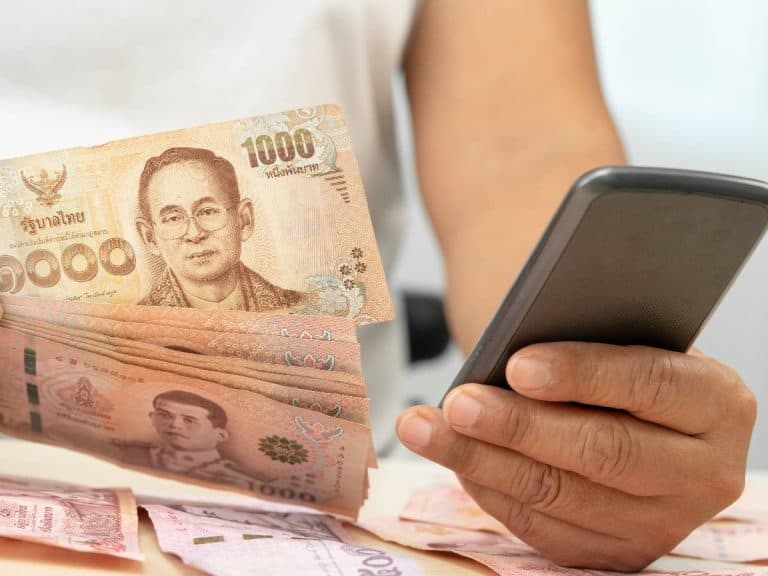Living and Working in Thailand: A Digital Nomad’s Experience
Are you longing to escape the hustle and bustle of city life and explore Southeast Asia? If you’re a digital nomad looking for an exciting adventure then Thailand is sure to provide the perfect balance of culture, nature, and opportunity. With many digital nomads making the move here in recent years, living and working in Thailand provides an amazing way to experience the beauty of this country while maintaining your career goals.
In this blog post, we will explore possible experiences as a digital nomad living in Thailand – from finding work that fits with my lifestyle to activities outside of work that make the most out of each stay. Whether you’re just considering moving or already on your own journey abroad, let me take you through all things related to being a remote worker in one of Southeast Asia’s premier destinations!
Digital nomads were attracted by the low cost of living, fast internet, and great food in Thailand! The culture is both traditional and modern at the same time, making it easy to find work no matter your industry. With nearly everybody speaking English in some form or another, communication for both social events and professional opportunities has never been easier.
Key Takeaways
- Living in Thailand as a digital nomad provides a unique opportunity to enjoy the beauty of Southeast Asia while still being able to work from anywhere.
- From finding a job that fits with your lifestyle to experiencing the sights, sounds, and culture of Thailand, there is much to be explored as a remote worker in this fascinating country.
- With its vibrant cities, stunning beaches, and natural beauty, Thailand provides an ideal environment for digital nomads looking to make the most out of their stay.

The Pros of Living in Thailand as a Digital Nomad
Affordable cost of living
The cost of living in Thailand is much lower than in many other popular digital nomad destinations. The country has a very low cost of living, and the Thai baht exchange rate is favorable to foreigners.
For example, you can get a studio apartment in Bangkok for $800-1000 USD a month. That’s less than what it would cost in most western countries!
Reliable and fast internet connection
Thailand is a great place to live as a digital nomad, and there are many reasons why. For one thing, the internet here is pretty reliable and fast.
You can get a reliable connection almost anywhere in Thailand, whether you’re at your home base in Bangkok or traveling around the country for work. Most restaurants have wifi, so you can get work done while eating lunch or dinner. There are also plenty of cafes with free wifi where you can sit down and get some work done (and maybe even meet some new people).
Thailand also has tons of affordable coworking spaces that offer great amenities like free coffee and tea and free printing—so you don’t have to pay an arm and a leg every time you want to print something out!
The diverse and vibrant ex-pat community
One of the best things about living in Thailand as a digital nomad is the diverse and vibrant ex-pat community.
The digital nomad community in Thailand is growing rapidly, and it’s easy to find other digital nomad communities and people who are interested in living this lifestyle.
If you want to meet other digital nomads, there are plenty of opportunities for that! There are many Facebook groups where you can find people with similar interests, including some that are specifically for women. You can also join Meetup groups for digital nomads, which will help you connect with others in your area who share your interests. You can even go on retreats with other digital nomads!
Another great way to meet people is through online communities like Slack and Discord chats. These allow you to chat with others who live near you or around the world, giving you a chance to talk about anything from work-related topics to hobbies and interests outside of work (like traveling!).
Access to several co-working spaces
Working from home is great, but sometimes you need to get out of the house. And when you’re a digital nomad, there are all kinds of places to do it.
Coworking spaces are popping up all over Thailand and they’re an ideal place to spend your day if you’re working remotely. They offer free WiFi, free coffee (and tea!), and plenty of space to spread out and focus on your work.
Even better? Most coworking spaces in Thailand offer co-working memberships for a fraction of the price you’d pay in other countries.
Opportunities to explore the country and culture
When you’re living in Thailand as a digital nomad, you have the opportunity to explore some of the most beautiful parts of the country. There are plenty of places to visit and things to do that will help you get your bearings.
You can visit temples, museums, and historical sites that will help you understand Thai culture and history. You can also explore the natural beauty of Thailand by visiting beaches or other natural destinations.
Have you ever dreamed of working remotely and experiencing the digital nomad life? Thailand is an excellent choice for this lifestyle, so why not check out this article about living and working there? You’ll be one step closer to making your remote-working dream a reality.
The Cons of Living in Thailand as a Digital Nomad
Language barrier
The language barrier is a huge con of living in Thailand as a digital nomad. Thai people are very friendly and welcoming, but some do not speak much English.
When you’re trying to get your business off the ground, having a language barrier can be very frustrating. It’s hard enough to get work done without having to worry about how you’ll communicate with your clients and business partners if you don’t speak the same language.
If you’re planning on staying in Thailand for an extended period of time, it’s worth investing in some language classes so that you can communicate more easily with your clients!
Cultural differences
The most obvious con of living in Thailand as a digital nomad is the cultural differences. Even though Thailand is one of the most popular countries for digital nomads, you should still be prepared for some major culture shock.
If you are not used to living in Asia or even just living in a more traditional society, then it can be difficult to adjust to life in Thailand. For example, there are many things that are considered rude in Western countries that are completely acceptable in Thailand. This includes things like touching people’s heads or shoulders (as this is considered disrespectful) or pointing your feet at someone when they enter the room (as this is considered rude).
In addition, there are many different customs that might confuse you as well. For example, it is common for Thais to use their hands when eating instead of using utensils like forks and knives. Also, Thai street food also tends to be very spicy which might be difficult for those who don’t like spicy foods!
Visa regulations
To gain legal authorization to work in Thailand, ex-pats must obtain a valid work permit. This document outlines the job held by the individual as well as their occupation and employer in Thailand – giving them peace of mind that they stand on solid ground when searching for employment opportunities. With this essential visa, foreign workers can operate freely without worry of potential consequences from authorities.
No of the type of visa they have, foreigners entering Thailand are not allowed to work unless they are given a work permit. To be qualified to apply for a work permit, a person must have the right kind of visa if they wish to work in Thailand.
A foreigner needs an initial visa, which is a non-immigrant visa, in order to obtain a work permit in Thailand. Before entering Thailand, a non-immigrant visa must be obtained.
The foreigner can start the work permit application process after he holds a non-immigrant visa. It would take 7 business days to complete the work permit process. Applications for work permits are processed at the Ministry of Labor office.
In order to be qualified to apply for a work permit, a foreign national must possess a non-immigrant or resident visa, have an employer who is willing to supply the necessary paperwork, and engage in employment that is not restricted to foreign nationals.
Thailand digital nomad visa
On September 1, 2022, the Thai government opened up its Long-Term Residency Visa for applicants. This 10-year visa is a joint effort between the Thailand Board of Investments and SMART visa programs to meet international standards of excellence in residency qualifications. To learn more about this exciting opportunity, visit this website.
Thailand has created the 10-year LTR visa to appeal to affluent expatriates and digital nomads, as it is believed that their extended presence will contribute significantly to boosting the nation’s economy.
The 10-year visa is designed to attract wealthy long-term visitors from the following categories:
Digital Nomads – Most digital nomads now utilize tourism visas; we do not believe the 10-year LTR visa will appeal to many digital nomads.
Highly trained professionals who can advance Thailand through their abilities and salary spending. – This is in competition with the current SMART Visa.
Wealthy Global Citizens – The Thailand Elite Visa already caters to them.
Wealthy seniors – Thailand is a retirement paradise, with Non-Immigrant O plus extension, O-A, and O-X visas already available for less wealthy seniors over the age of 50. The benefit in this case is ten years of peace of mind and merely yearly reporting to immigration rather than every 90 days.
The visa fee for this is as follows: a 5-year visa costs 600,000 Baht including annual fees. A 10-year visa costs 1,000,000 Baht, plus annual fees. The cost of a 20-year visa, including annual payments, is 2,400,000 Baht.
Weather conditions
Thailand’s climate is subtropical throughout most of the country, leading the weather in Thailand to year-round hot and humid conditions. During the hottest months of the year, temperatures regularly top 40° C (105° F). Even during the cooler “winter” season, you can expect daily highs to be around 30° C (86° F).
Traffic and Transportation
Thailand has a variety of modes of transportation; none are particularly prevalent. The majority of long-distance travel is done by bus. Although plans to expand services with high-speed rail lines reaching numerous important regions of Thailand are in the works, low-speed rail travel has long been a rural long-distance transportation method. The main mode of moving freight throughout the nation is by road.
Motorbikes and tuk-tuks are frequently used for short journeys. Public motorbike taxis are available in Pattaya, Bangkok, and other major cities. Bangkok also has an absurdly large number of taxis. Daily attendance on Bangkok’s various transit lines has increased to nearly 800,000 since the nation’s first fast rail transit line launched there in 1999, and numerous further lines are either being built or proposed.
Tips for Living in Thailand as a Digital Nomad
Finding accommodation
Obtaining property ownership as a foreigner in Thailand can be overwhelming, therefore many expats lean towards renting instead. Fortunately, local landlords are attentive to the requirements of ex-pats and usually promote their rental properties well. The rental process is typically smooth sailing; with diversified housing options available at competitive rates.
Navigating the visa system
The Thai Immigration Law mandates that you obtain a visa before migrating to Thailand.
The majority of foreigners who relocate to Thailand do so on a tourist visa, which is only good for 60 days, or a non-immigrant visa, which is only good for 90 days at first and must be renewed through Thai the Immigration office.
With non-immigrant or tourist visas, a short-term extension of stay is often granted for up to 30 days; however, if you need to prolong your stay for longer, it is possible to ask for an extended stay of up to one year for the following reasons:
- Business
- Education
- Marriage
- Retirement
While extensions are granted by Thai Immigration within Thailand, both tourist and non-immigrant visas may be provided by a Thai Embassy or Consulate abroad.
It is always a good idea to check with the Thai Embassy for the most recent information on visa options and criteria before applying for any type of visa.
Learning the language and culture
One of the biggest hurdles of living in Thailand is learning the language and culture.
The Thai language is extremely complex, and it can be difficult to pick up just by being in the country. You’ll need to study hard, practice a lot, and get used to saying things the right way—or your Thai friends will correct you! It’s important to remember that this is not a race, so take your time with it.
Also, while many Thais understand English, they may not always be able to speak it well or use it comfortably. If you know Thai or are learning it, try using your language skills with them as much as possible.
Balancing work and play
One of the biggest struggles of living in Thailand as a digital nomad is balancing work and play.
Thailand is known for its beaches, good weather, great food, and friendly people. It’s also known for being one of the most popular tourist destinations in the world. There’s always something to do—whether it’s laying out on a beach or exploring an ancient temple complex—and it can be hard to find time for work.
In addition to this problem, there is also the issue of finding enough time in your day to get everything done. While Thailand has plenty of distractions, it doesn’t have nearly as many distractions as it does office spaces or coffee shops back home where you might find yourself spending too much time away from work if you’re not careful about managing your time efficiently.
Staying safe and healthy
Staying safe and healthy is one of the biggest concerns for ex-pats in Thailand. Living in Thailand as a digital nomad is no different. There are plenty of reasons to worry about your safety, but there are also ways to mitigate those fears and make sure you’re living comfortably and safely.
Thailand has a reputation for being dangerous—and it’s true that there are certain areas where you might want to avoid walking alone at night or taking public transportation alone. But this doesn’t mean that you can’t go out on your own—it just means that you should be smart about where you go and what time of day it is.
Thailand has an excellent public health system, but if you’re traveling from another country and are used to having private health insurance, it’s important to know how much coverage you have while living in Thailand as a digital nomad. Some policies have limitations on coverage outside of their home countries, so check with your provider before going abroad if possible.
Living In Thailand as a digital nomad FAQs
What is the ex-pat community like in Thailand?
Thailand, renowned for its stunning landscapes, rich culture, and warm-hearted locals, has long been a favored destination for expatriates seeking a life-changing experience. The ex-pat community in this captivating country is incredibly diverse – from professionals and entrepreneurs to artists and retirees, people from all walks of life have chosen to call Thailand their home.
More than just a melting pot of nationalities, the ex-pat network in Thailand is a vibrant, supportive, and close-knit community. Through their shared eagerness to explore and appreciate Thai traditions, language, and lifestyle, ex-pats forge strong friendships and connections, often built upon mutual understanding and camaraderie.
What are the best cities in Thailand for digital nomads?
For digital nomads in search of a vibrant, well-connected, and affordable base, Thailand is a top contender offering attractive cities brimming with rich culture and modern conveniences. Leading the pack is Chiang Mai, a northern gem boasting cost-effective co-working spaces, friendly local communities, and a thriving ex-pat scene. Similarly, the coastal town of Chiang Rai offers reasonable coastal living with readily available high-speed internet and easy access to picture-perfect beaches.
How easy is it to find accommodation as a digital nomad in Thailand?
The prospect of finding accommodation as a digital nomad in Thailand is quite promising, thanks to the country’s welcoming vibe and a plethora of options to choose from. In recent years, Thailand has gained immense popularity among digital nomads, owing to its affordable living costs, stunning landscapes, and reliable internet connectivity. Searching through platforms such as Airbnb or joining Facebook groups dedicated to digital nomads in Thailand can be a great starting point to explore a wide range of options, from cozy studio apartments to luxurious villas.
What cultural differences should I be aware of when living in Thailand?
Relocating to Thailand can be an exciting adventure, but it is essential to be aware of some key cultural differences to ensure a smooth transition into your new surroundings. A cornerstone of Thai culture is the deep-seated respect for authority and hierarchy. Elders, officials, and even strangers will appreciate a friendly and courteous attitude from you. Moreover, adhering to social etiquettes, such as the traditional greeting referred to as the “wai,” will leave a lasting positive impression on the locals.
What are the top tourist destinations to visit while living as a digital nomad in Thailand?
Thailand, a captivating destination for most digital nomads everywhere, offers a perfect blend of culture, natural beauty, and modern amenities. You can visit Chiang Mai, Bangkok, Koh Samui, and more! As you carve out time during your work journey to satiate your wanderlust, consider exploring some top tourist hotspots in this tropical paradise.
Check out this article here to check out the top destinations in Thailand!
How can I stay healthy and safe while living in Thailand as a digital nomad?
Embracing a digital nomad lifestyle in the enchanting country of Thailand can be exciting and fulfilling, as long as you prioritize your health and well-being during your stay. Adapting to a new environment calls for mindful choices, such as selecting nutritious local cuisine and staying hydrated, particularly in a region known for its humidity. Besides enjoying the flavorful and healthy Thai dishes, try setting aside time for regular exercise, and exploring the beauty of your surroundings through activities like walking, jogging, or joining a local group yoga class
Conclusion
As a digital nomad in Thailand, I do not regret making the choice to temporarily relocate there. Admittedly, it was difficult at times and the cultural differences took some getting used to, but overall I was able to take advantage of all the perks that come with living in such a vibrant and beautiful country.
From cheap accommodation and delicious food to excellent work opportunities and access to incredible tourist destinations, my experience as a digital nomad in Thailand has been nothing short of memorable.
Despite its few disadvantages, living in Thailand is worth considering for anyone who wants to learn more about different cultures while also taking advantage of remote working opportunities. To get started on your journey, be sure to subscribe to our newsletter so that you can stay up-to-date on the best information about everything having to do with living in Thailand.






